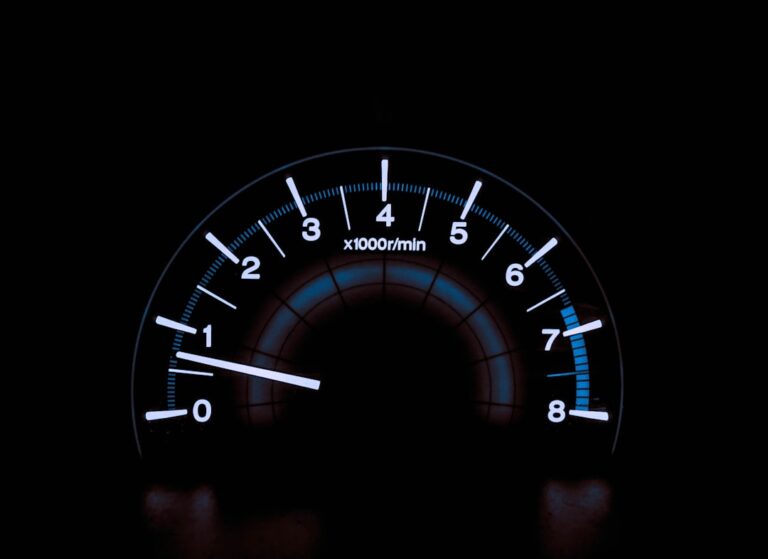Support our educational content for free when you purchase through links on our site. Learn more
Are there tax benefits to leasing a Tesla? [2024] 🚗💰
Did you know that leasing an electric vehicle (EV) can provide you with tax benefits? If you’re considering leasing a Tesla, you’ll be pleased to know that there are potential tax advantages to take advantage of. In this comprehensive guide, we’ll explore the tax benefits of leasing a Tesla and how you can save money while driving a cutting-edge electric vehicle. So, buckle up and let’s dive into the world of EV tax credits and leasing!
Table of Contents
- Quick Answer
- Quick Tips and Facts
- Background: The Rise of Electric Vehicles
- Leasing a Tesla: The Tax Credit Advantage
- Leasing vs. Buying: Which Option is Right for You?
- The Federal EV Tax Credit: How Does it Work?
- State and Local Incentives: More Savings for Tesla Lessees
- Claiming the EV Tax Credit: A Step-by-Step Guide
- FAQ
- Conclusion
- Recommended Links
- Reference Links
Quick Answer
Yes, there are tax benefits to leasing a Tesla! Leasing an electric vehicle allows you to take advantage of the federal EV tax credit, which can save you up to $7,500. This tax credit is claimed by the leasing company, not the lessee, but the savings are often passed on to you in the form of lower monthly lease payments. Leasing a Tesla can be a smart financial move, allowing you to enjoy the benefits of driving an electric vehicle while also taking advantage of potential tax savings.
👉 CHECK PRICE on: Tesla Official Website | TrueCar | Edmunds | Auto Trader
Quick Tips and Facts
- Leasing an EV has become increasingly popular, with over 40% of EVs leased in April 2024, a significant increase from the previous year.
- The federal EV lease tax credit is available to the lessor (leasing company), not the lessee (you).
- The leasing company can claim the credit and pass the savings to you, the lessee, in the form of lower monthly payments.
- The federal EV lease tax credit is up to $7,500 for qualified electric vehicles.
- State and local incentives may also be available, providing additional savings for Tesla lessees.
Background: The Rise of Electric Vehicles

Before we delve into the tax benefits of leasing a Tesla, let’s take a moment to appreciate the rapid rise of electric vehicles. Over the past decade, EVs have transformed the automotive industry, offering a greener and more sustainable alternative to traditional gasoline-powered cars. With advancements in battery technology and increased charging infrastructure, EVs have become a viable option for many drivers.
In recent years, the demand for EVs has skyrocketed, with more and more consumers opting for electric vehicles. This surge in popularity can be attributed to several factors, including environmental consciousness, lower operating costs, and government incentives. As a result, automakers like Tesla have emerged as leaders in the EV market, offering innovative and high-performance electric vehicles.
Leasing a Tesla: The Tax Credit Advantage
When it comes to leasing a Tesla, one of the major advantages is the potential tax benefits. Unlike purchasing a Tesla, where the federal EV tax credit goes directly to the buyer, leasing allows the leasing company to claim the tax credit. However, the savings are often passed on to you, the lessee, in the form of lower monthly lease payments.
The federal EV tax credit can be a significant financial incentive for leasing a Tesla. The credit amount is up to $7,500 for qualified electric vehicles, which can make a substantial difference in your monthly lease payments. By leasing a Tesla, you can enjoy the benefits of driving an electric vehicle while also taking advantage of potential tax savings.
Leasing vs. Buying: Which Option is Right for You?
Now that we’ve explored the tax benefits of leasing a Tesla, let’s compare leasing to buying to help you determine which option is right for you. Both leasing and buying have their advantages and disadvantages, so it’s essential to consider your personal circumstances and financial goals.
Leasing a Tesla: Pros and Cons
✅ Lower monthly payments: Leasing a Tesla typically comes with lower monthly payments compared to buying. This is because you’re only paying for the depreciation of the vehicle during the lease term, rather than the full purchase price.
❌ No ownership: When you lease a Tesla, you don’t own the vehicle. This means you won’t have the equity that comes with ownership, and you’ll need to return the car at the end of the lease term.
✅ Access to the latest technology: Leasing allows you to drive a new Tesla every few years, giving you access to the latest technology and features.
❌ Mileage restrictions: Most lease agreements come with mileage restrictions, which can limit your freedom to drive as much as you’d like.
Buying a Tesla: Pros and Cons
✅ Ownership: When you buy a Tesla, you own the vehicle, giving you the freedom to modify, customize, and keep it for as long as you’d like.
❌ Higher upfront costs: Buying a Tesla typically requires a larger upfront payment, whether it’s a down payment or financing the full purchase price.
✅ No mileage restrictions: As the owner of a Tesla, you can drive as much as you’d like without worrying about mileage restrictions.
❌ Depreciation: Like any vehicle, a Tesla will depreciate over time. When you decide to sell or trade-in your Tesla, you may not recoup the full purchase price.
Ultimately, the decision between leasing and buying a Tesla depends on your personal preferences, financial situation, and long-term goals. If you value lower monthly payments and the ability to drive a new Tesla every few years, leasing may be the right choice for you. On the other hand, if you prefer ownership and the freedom to customize your Tesla, buying may be the better option.
The Federal EV Tax Credit: How Does it Work?
Now, let’s take a closer look at how the federal EV tax credit works and how it applies to leasing a Tesla. The federal EV tax credit is a financial incentive provided by the government to encourage the adoption of electric vehicles. It is designed to offset the higher upfront cost of EVs and make them more affordable for consumers.
The federal EV tax credit is available to individuals and businesses who purchase or lease a qualified electric vehicle. However, when it comes to leasing, the tax credit is claimed by the leasing company, not the lessee. The leasing company can use the tax credit to reduce their tax liability and pass the savings on to you in the form of lower monthly lease payments.
The amount of the federal EV tax credit is up to $7,500 for qualified electric vehicles. However, it’s important to note that the full credit is only available for vehicles with a battery capacity of 16 kWh or more. The credit amount gradually decreases for vehicles with smaller battery capacities, and it phases out entirely for vehicles with a battery capacity of less than 4 kWh.
State and Local Incentives: More Savings for Tesla Lessees
In addition to the federal EV tax credit, many states and local governments offer their incentives to further incentivize the adoption of electric vehicles. These incentives can vary widely depending on where you live, but they often include additional tax credits, rebates, or grants for purchasing or leasing an electric vehicle.
When leasing a Tesla, it’s essential to research the incentives available in your state or local area. Some states may offer additional tax credits or rebates specifically for leasing an electric vehicle. By taking advantage of these incentives, you can maximize your savings and make leasing a Tesla even more affordable.
Claiming the EV Tax Credit: A Step-by-Step Guide
If you decide to lease a Tesla and want to take advantage of the federal EV tax credit, here’s a step-by-step guide on how to claim the credit:
-
Research available incentives: Start by researching the federal, state, and local incentives available for leasing an electric vehicle. Visit the Inflation Reduction Act and other reputable websites to learn more about the tax credits and incentives for electric vehicles.
-
Lease a qualified electric vehicle: Ensure that the Tesla you lease qualifies for the federal EV tax credit. The vehicle must meet the battery capacity requirements and other eligibility criteria.
-
Work with a knowledgeable leasing company: Choose a leasing company that is familiar with the federal EV tax credit and can guide you through the process. They will handle the paperwork and claim the tax credit on your behalf.
-
Enjoy the savings: Once the leasing company claims the tax credit, the savings will be passed on to you in the form of lower monthly lease payments. Enjoy driving your Tesla while benefiting from potential tax savings!
Remember, it’s crucial to consult with a tax professional or financial advisor to ensure you fully understand the tax implications and benefits of leasing a Tesla. They can provide personalized advice based on your specific financial situation and help you make informed decisions.
FAQ

Can I get a tax credit for a leased Tesla?
Yes, you can potentially get a tax credit for leasing a Tesla. The federal EV tax credit is available to the leasing company, not the lessee. However, the savings are often passed on to you in the form of lower monthly lease payments.
Read more about “Will the $7500 Tax Credit Work on a Leased Tesla? Discover the Truth … 🤔”
Do you pay tax on a Tesla lease?
Yes, you will still need to pay sales tax on a Tesla lease. The sales tax is typically included in your monthly lease payments.
Read more about “Tesla Financing Declined: What You Need to Know … 🚗💸”
Which Tesla qualifies for the $7,500 tax credit?
Most Tesla models qualify for the $7,500 federal EV tax credit. However, it’s important to note that the full credit is only available for vehicles with a battery capacity of 16 kWh or more. The credit amount gradually decreases for vehicles with smaller battery capacities.
Read more about “Does Leasing a Tesla Qualify for Tax Credit? …”
How do I claim a $7,500 EV tax credit lease?
To claim the $7,500 EV tax credit for a lease, you need to work with a leasing company that is familiar with the process. The leasing company will handle the paperwork and claim the tax credit on your behalf. The savings will be passed on to you in the form of lower monthly lease payments.
Read more about “How Much to Lease a Tesla Model 3 in 2024? 🚗💰”
Conclusion

Leasing a Tesla can be a smart financial move, especially when it comes to potential tax benefits. By taking advantage of the federal EV tax credit, you can save up to $7,500 on your lease, making driving a cutting-edge electric vehicle even more affordable. Whether you choose to lease or buy a Tesla, it’s important to consider your personal circumstances and financial goals. Consult with a tax professional or financial advisor to ensure you make the best decision for your situation.
So, if you’re in the market for a new electric vehicle, consider leasing a Tesla and taking advantage of the tax benefits. Not only will you be driving a state-of-the-art electric vehicle, but you’ll also be contributing to a greener and more sustainable future.
Recommended Links
- Latest Car Lease Deals
- Car Lease Basics
- Electric Vehicle Leases
- Credit Score and Car Leasing
- Best Lease Terms
- Does leasing a Tesla qualify for tax credit?



